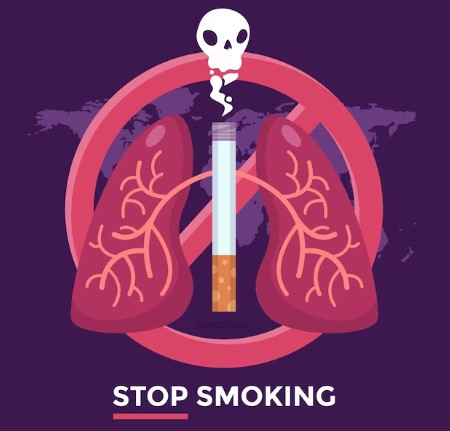“Smoking kills. If you’re killed, you’ve lost a very important part of your life.”
–Brooke Shields

I’m a staunch anti-smoker. I hate the smell. I hate the nasty, foul reek that cigarette smoke leaves on your clothes if you come within a 38 mile radius of it. I hate the stench of people who smoke and then try to cover it up by chewing gum. It’s foul, foul, foul. I also have two grandfathers who died of emphysema due directly to smoking. Smoking robbed me of my time with them and robbed them of their time on earth as well as the quality of the last years of that time.
From a financial perspective, I also hate smoking. If you smoke a pack a day and pay $6 for the pack (generally low, given the average cost of a pack), you’re paying $2,190 a year for the privilege of sending lung darts down your throat. If you look at long-term costs, it’s actually pretty much a wash. Your healthcare costs will be higher, but you’ll die, on average, ten years earlier, so that’s 10 years less of housing, food, entertainment, and the like which a smoker won’t have to pay for.
The essence of the decision comes down to the fact that, if you are a smoker, you are choosing to engage in a behavior which will destroy you physically and fiscally.

I recently read an article which shed some light on the challenges that smokers face. After all, it’s not as simple, in most cases as saying “screw it. I’m done with cigarettes,” and presto! changeo! You’re done. As Mark Twain said, “It’s easy to quit smoking. I’ve done it hundreds of times.” It’s a drug addiction (See Also: Credit Card Debt and Drug Addiction: Are They Related?). Maybe I should be more compassionate.
After all, if the financial deck was stacked against smokers previously, after the passage of the Affordable Care Act, it’s now even more stacked. The ACA allows health insurance providers to tack on a 50% penalty in premiums for covering smokers. According to the American Lung Association, 28 states plus DC have smokers’ rights laws which prevent employment discrimination against smokers; that number is declining. In other words, the number of employers who are implementing legal practices of not hiring smokers is increasing.
How does all of this relate to my choice of whether or not to help you if you’re a smoker?
To me, the main crux of a decision whether or not to take on a client is the question of if I can actually make a significant and incremental impact in the client’s and the client’s family’s life. If you spend a couple of stacks on me, will you be able to look back later and say “yeah, that was money well spent?”
A lot of that deals with interpersonal factors. How much do you trust me? How much are you willing to listen? How much are you willing to change if change is indeed necessary? If I hear a lot of “yeah, buts” in our initial consultation, then I’m going to (hopefully) politely thank you for your interest and decline the opportunity.
So, that eliminates one group of people whom I won’t serve: the intransigent and intractable smoker. If you smoke, like it, and don’t want to quit, well, good luck in your life.
This leaves the group of people who have tried or want to quit but just can’t stop smoking. I’m no smoking cessation expert. I never hopped on that ride. Aside from smoking a couple of cigars to celebrate returns from deployments or a friend’s kid being born, I’ve never put burning objects in my mouth, and I won’t again. I can’t claim empathy. I don’t know what it’s like to try to quit and not be able to. I think the behavior is abhorrent, but that doesn’t mean the person is bad.
It ensures that a financial plan which I provide (assuming I find out that you’re a smoker, and it’ll probably come out in your budget if it’s not explicitly stated) will include something along the following meme:
STOP FRIGGIN’ SMOKING!!! It’s expensive, nasty, and will almost certainly kill you at some point if you don’t get hit by the beer truck first. Here is how smoking is preventing you from reaching your retirement goals:
[LIST OF FINANCIAL COSTS AND REPERCUSSIONS HERE]
But, if you’re a smoker, you probably already knew most of that. You’re slapping the cartons on the counter on a regular basis and forking over the money for it. Monkey Brain is entrenched in getting his high on, and he’ll make you go through some nasty DTs when you try to get off that ride.
In a sense, I’ve created a circular argument here. I’m going to tell you to do something which you haven’t been able to do up until now and I don’t really have any weapons in my arsenal to help you accomplish it. Seems to violate one of the precepts of whether or not I take on a client in the first place, to wit:
[C]an [I] actually make a significant and incremental impact in the client’s and the client’s family’s life[?]
After all, a lot of what I do hinges on behavioral finance and the psychology of getting you to change bad habits. Addiction is the water’s edge where psychology starts to blend into physiology, and mind hacks simply don’t work.
On the other hand, seeing in big, bold numbers
BECAUSE YOU SMOKE, YOU WILL NEED TO WORK X YEARS LONGER TO ACHIEVE RETIREMENT
might be the boot up the rear a smoker needs to finally knuckle down and quit the habit.
There’s not a lot of scientific evidence about what provides a tipping point in getting someone to stop smoking. Some people decide that they’re not going to smoke any more, and voila! No more urges. Some people have to have the doctor show them the black spots on their lungs that showed up on the most recent x-ray before they’re snapped out of it. Some people never quit, no matter how many times they try.
I’m not a fan of lost causes.
What do you think? Am I doing a disservice by saying no to all smokers? What of those who won’t change despite my recommendations because they simply cannot? What would you do? Ideas are welcome.
Around a year ago, I wrote about how to invest like a hedge fund manager. If you haven’t read it, go check it out!
Author Profile
- John Davis is a nationally recognized expert on credit reporting, credit scoring, and identity theft. He has written four books about his expertise in the field and has been featured extensively in numerous media outlets such as The Wall Street Journal, The Washington Post, CNN, CBS News, CNBC, Fox Business, and many more. With over 20 years of experience helping consumers understand their credit and identity protection rights, John is passionate about empowering people to take control of their finances. He works with financial institutions to develop consumer-friendly policies that promote financial literacy and responsible borrowing habits.
Latest entries
 Low Income GrantsSeptember 25, 2023How to Get a Free Government Phone: A Step-by-Step Guide
Low Income GrantsSeptember 25, 2023How to Get a Free Government Phone: A Step-by-Step Guide Low Income GrantsSeptember 25, 2023Dental Charities That Help With Dental Costs
Low Income GrantsSeptember 25, 2023Dental Charities That Help With Dental Costs Low Income GrantsSeptember 25, 2023Low-Cost Hearing Aids for Seniors: A Comprehensive Guide
Low Income GrantsSeptember 25, 2023Low-Cost Hearing Aids for Seniors: A Comprehensive Guide Low Income GrantsSeptember 25, 2023Second Chance Apartments that Accept Evictions: A Comprehensive Guide
Low Income GrantsSeptember 25, 2023Second Chance Apartments that Accept Evictions: A Comprehensive Guide

